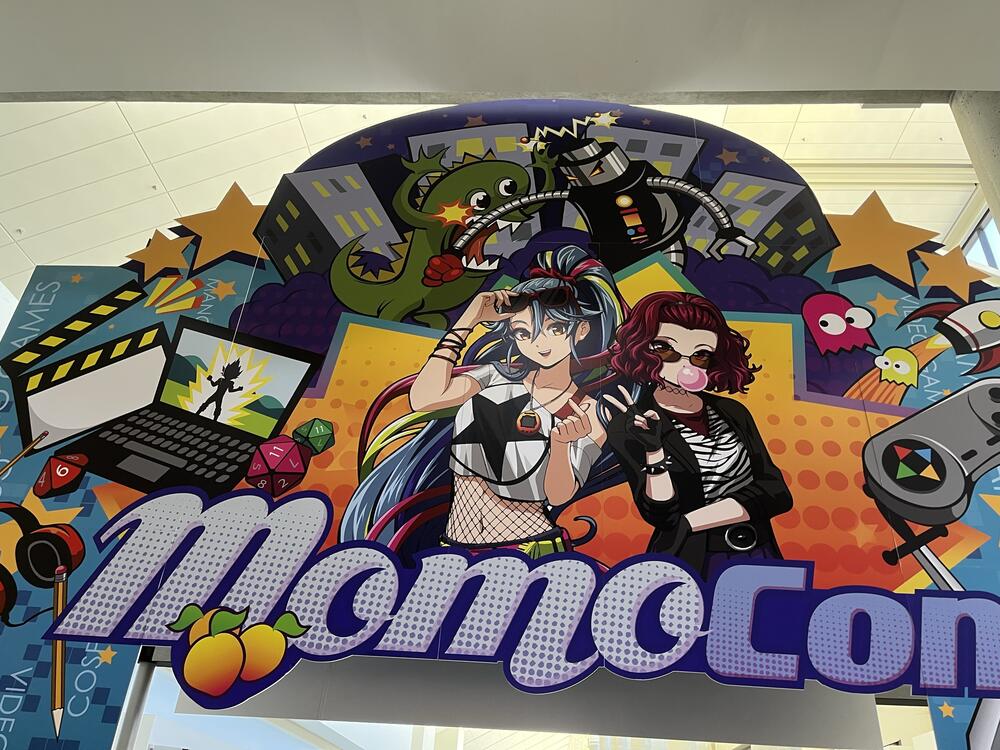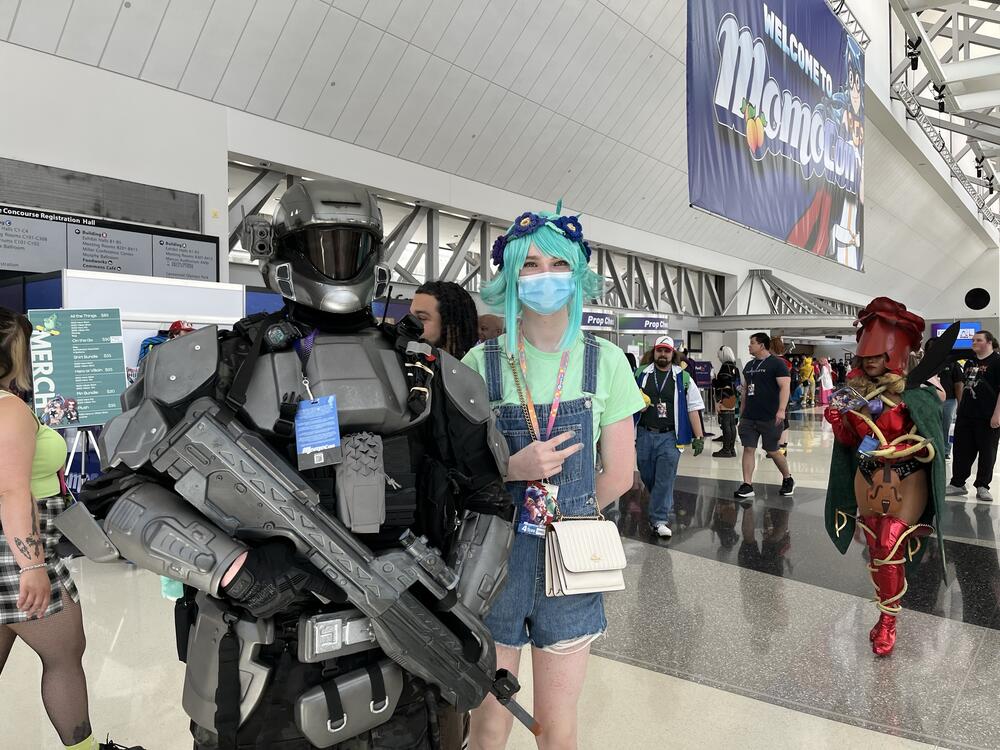
Caption
MomoCon was founded in Atlanta in 2005 by a Georgia Tech student, named after the Japanese word for 'peach' and focuses on gaming and Anime.
Credit: Khari Sampson / GPB
GPB's Peter Biello speaks with Emory's Thomas Smith about the economic impact of Momocon.

MomoCon was founded in Atlanta in 2005 by a Georgia Tech student, named after the Japanese word for 'peach' and focuses on gaming and Anime.
MomoCon—a conference for fans of gaming, animation, cosplay, comics and tabletop games—kicked off its 20th anniversary this week in Atlanta.
Over the years, it’s grown from a 700 person on-campus event to the largest such event where you’ll see costumed attendees celebrating Japanese Anime, Star Wars, Dungeons and Dragons, and – maybe even your favorite character from a Netflix series. But this year, event planners are expecting more people than the 56,000 attended last year and they’ll be bringing more than costumes and 20-sided die. They’re bringing their wallets.
With me now to talk about the economic impact of MomoCon is Thomas Smith, Professor in the Practice of Finance at Emory University Goizueta Business school. Welcome to the program.
Peter Biello: So what segments of Atlanta's economy stand to benefit the most, do you think, from a conference like MomoCon?
Thomas Smith: I think it's important to at least mention that this is an Atlanta-based company. This is a family that started this conference and unlike other conferences or even other events that come to town where you're likely to have a large or a lion's share of money leaving as the corporate foundation leaves town, this is staying here because they're from Atlanta. That's why I think it's so important to note that it's gonna have an economic impact.
The areas are going to be, of course, entertainment in and around the convention centers, so transportation, hotels, dining, things of that nature. But there are gonna be ancillary effects that are hitting a lot of Centennial Park. I do know some events are gonna taking place. People are gonna to be hitting the Sky Wheel and things of the nature. So, I mean, there's lots of ancillary elements that are gonna receive money because of this.
Peter Biello: And what do you think the planners of MomoCon get right to help it grow to the extent that it has?
Thomas Smith: Conference lends itself to lots of different audiences, right? It is specific enough in terms of gaming, not only electronic but also you mentioned the tabletop games which I think is important, but lots of characters and the cosplay element. I think it lends itself to people who are into lots of elements of fantasy, of adventure, things of this nature. And they just hit the nail on the head in terms of finding the right combination of fans. And one of the things you should note is that MomoCon isn't anywhere else. It's only in Atlanta. So unlike DragonCon or Comic Con, which may be across the country in LA and Vegas and what have you, no, Momocan is only in Atlanta, so you've got a huge footprint.

Attendees often arrive dressed on costumes representing their favorite characters from the worlds of anime or gaming.
Peter Biello: Are there ripple effects for people who depend on Atlanta's economy to do well? To put it another way, if you don't attend MomoCon, do you somehow reap a secondhand benefit?
Thomas Smith: Well, the economic multiplier does work in this case, in these kind of events, and that's because a lot of the money stays in place. If you're driving an Uber, if you've got a restaurant, if your got a hotel, you know...MARTA is going to see a lot people jumping on the train and going downtown, lots of opportunities for people to walk around afterwards, and so the event, even though it's at the Georgia World Congress Center, it's going to sort of splash across most of the downtown Atlanta area. Fifty thousand people, sixty-thousand people, a lot of people are staying in town. And as a result, you're going to see people going out in the evenings, grabbing a bite to eat, things like that. So the ripple effect is going to hit a lot of the entertainment sector.
Peter Biello: I know you have prior commitments so you won't be able to attend MomoCon, but if you could, what would be the draw for you? Is it the tabletop games? Is it dressing up like something? What do you think?
Thomas Smith: My daughter and her friends are going. My older son is going. He's actually even taking my grandson to the event. So I think if I was going, I would wanna hang out with my 11-year-old grandson, Harrison, and see him enjoy it. I think the tabletop game area, they're gonna have an entire room for tabletop games. I think that that's an awesome opportunity to sit down, enjoy a game that you like, and you can play it with—there's gonna be people from all 50 states, there's gonna people from dozens and dozens of countries, I mean, people come from all over the world for this event because it's the only place where this event is held. So I think sitting down at the tabletop game with someone from Germany or someone from Brazil or something like that would be a hoot.
Peter Biello: What a wonderful chance to make friends from across the world right here in Atlanta.
Thomas Smith: Absolutely, and what better medium to do it than a conference where you could dress up like your favorite character from Star Wars if you wanted to.